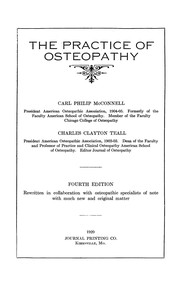Irminger Sea’s Crucial Role in Atlantic Ocean Current Collapse Identified
A new study highlights the vital role of the Irminger Sea in the Atlantic Meridional Overturning Circulation (AMOC). Increasing meltwater from the Arctic is weakening this critical ocean current, which regulates global climate. The research suggests that disruptions in the Irminger Sea could cause widespread climate shifts, including cooling in the Northern Hemisphere and stronger climate extremes. Experts stress the need for targeted monitoring to better understand and mitigate these potential impacts.

A new study highlights the critical role of the Irminger Sea, located off southeastern Greenland, in maintaining the strength of the Atlantic Meridional Overturning Circulation (AMOC). The AMOC, a global ocean conveyor belt, is crucial for regulating Earth's climate, particularly in the Northern Hemisphere. According to research led by Dr Qiyun Ma, a postdoctoral researcher at the Alfred Wegener Institute for Polar and Marine Research in Germany, disruptions in this region could have far-reaching climate impacts.
Dr Ma emphasised that freshwater input into the Irminger Sea directly inhibits deep-water formation, a key process for sustaining the AMOC. This reduction in deep-water currents, caused by increasing Arctic meltwater, significantly alters atmospheric circulation and disrupts the broader ocean current system. The study underscores the urgent need for targeted monitoring of the Irminger Sea, as findings suggest its influence on the AMOC surpasses that of neighbouring regions, including the Labrador Sea and Nordic Seas.
Freshwater Flow Weakens Ocean Currents
The research simulated scenarios of increased freshwater in four regions of the North Atlantic and assessed the AMOC's sensitivity. It was discovered that the Irminger Sea plays a unique role in regulating deep-water formation across adjacent seas, including the Labrador Sea. Freshwater input in this area also exacerbates climate extremes, such as altered precipitation patterns in North America and the Amazon Basin.
Wider Climate Implications
Findings from this study align with earlier predictions of Northern Hemisphere cooling and Arctic sea ice expansion due to a weakening AMOC. Additionally, slight warming in the Southern Hemisphere and disruptions to tropical monsoon systems were observed. Dr Ma pointed out that the location of freshwater input heavily influences these outcomes, making precise predictions more challenging.
The study, published in Science Advances on November 20, highlights the growing need for climate experts and policymakers to address AMOC vulnerabilities. Enhanced monitoring of sensitive areas like the Irminger Sea could aid in developing adaptive strategies to mitigate future climate disruptions.












)



























































